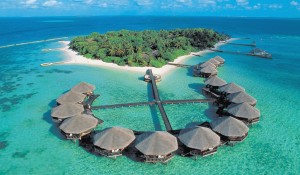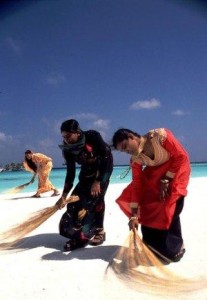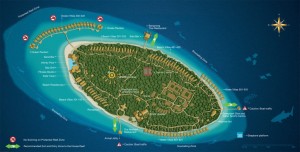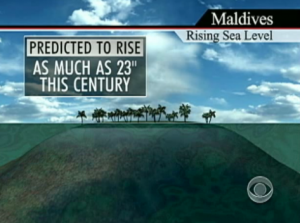By Minh Le Do
Part I: The misty history of the Maldives
Modernity is a very complicated term used to determine the difference between the past, present, and future. Generally, it entails the meeting of processes of political, scientific, technological, economic and social modernization. It is the discovery of self and the recognition of otherness. There are a lot of different concepts on “modernity” but the two main perspectives of modernity that modernists have been discussing the most throughout the years are:
- Modernity as a singularity; a continuing project influenced by the history of Western Europe, and which defines a universal goal to which the rest of the world aspires. It is an European accomplishment, and a global imposition of Western social, economic, political forms that sterilizes the diversity of human experience and the power of diverse forms of community (Cooper 2005, 113)
- ·Modernity as a plurality, which consists of multiple modernities and alternative modernities. This definition argues that the development of cultural forms of these non-Western people develop is not mere repetitions of tradition but rather; from their own progressing identity. (Cooper 2005, 114)
While Cooper leans toward the singularity nature of modernity, I do not quite agree with that. To me, modernity is a temporal concept by which we refer to our understanding of the present in its unique historical sense of present, in another word, in what distinguishes it from the past, and also in what it promises for the future.
As discussed in the previous post, even though the Maldives was colonized by the British government, the country progressed toward modernity on its own, rather form the capitalism and imperialism influence of its colonizer. The British was just using the Maldives as a military base and had no intention in building up a colonized country (Metz 1994). Thus, there are no marks of European modernity on the islands.
What are other reasons that keep Maldives from being classified as a singular modernity? One is through architecture: Due to the island’s limited geographical boundaries and unique land condition, the Maldives could not adopt the construction technology and planning design of the Western world. The Republic had to implement its own plan for the unique spatial configuration.
I believe modernity started with the modernization efforts derived from the country’s hospitality industry, started in 1972 (Neville 2012). Tourism, especially to small, resource-poor countries like the Maldives, is regarded as a high potential stimulus to the economy. Tourism has helped this country developed more than 100 primitive islands into exclusive tourist resorts. Furthermore, this largest economic industry also accounts for 30% of GDP and more than 60% of foreign exchange receipts in Maldives. (Ministry of Tourism, 2011).
The modernization process of establishing hotel resorts (as well as transportation means such as airports) increases the value of homogeneity of the Maldives tremendously by balancing out the significant gap between the Maldivians who live in Male, the capital of the Maldives, and the remaining population inhabiting in outer islands. The foreign investment in building resort islands has raised the standard of living among the 75 percent of Maldivians lived in outer atolls, making the Maldives more self-sufficient since there are now more access to basic services for the natives. However, the people of Maldives still prefer to migrate from small, isolated islands to Male, due to its high economic potentials. Consequently, this rapid urbanization leads to congested housing and land scarcity in the capital island. Under such circumstances, the government is trying its best to distribute evenly the social services and basic infrastructure to the smaller surrounding islands (Bertaud 2002, 1). By looking at the map of infrastructure below, you can see that the authorities are trying to divert the crowded population to other “regional centers” where new economic opportunities are offered. Coincidentally, this strategy looks like a variation of Chauncey Harris and Edward Ullman’s multiple nuclei model.
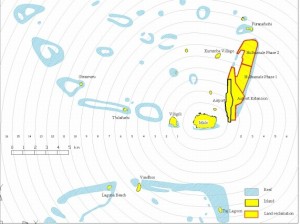
The Maldives’ regional development model – A variation of the multiple nuclei model aiming to even out the economic opportunities, resources, and population among the islands (Berteaud, 2002)
The Maldivian tourism sector is based on a concept where each resort is isolated on its own island. The Maldives took advantage of the country’s island fragmentation and used it to create its own niche market (Bertaud 2002, 2). This technique of “enclave tourism,” or tourist activities that are planned in one small geographic area, complements the scenery offered in the Indian Ocean. Not only this kind of tourism allows limited interaction between one resort with the others, it also achieves the goal of isolating the tourists from the indigenous Maldivians of the Maldives’ government. Such strategy was initiated because the government wanted to protect the traditional lifestyles and religion in the rest of the country. In addition, the tourism board also restricts resorts to certain zones and islands close to Male.
But why do the Maldives want to keep themselves out from the globalization of the tourism industry? The answer is what makes the modernity attribute of the Maldives distinguished – to protect and preserve the traditional Muslim identity of the nation.
Islamic Democracy, a political ideology that incorporates Islam into the affairs of the Maldives, i.e. source of legislation, could be seen as one of the factors that keeps the country away from the full and complete globalization and modernity. As you might not know, the Maldives restrict freedom of religion as all citizens must be Muslims and are condemned from certain things, such as alcohol. The government, however, adapts some exceptions and allows alcohol consumption (Bénédicte, 2010).
The Islamic moral code also creates a barrier preventing women to work in the hospitality industry. This can be seen clearly from the declining female participants in training at Four Season Hotel Group in Maldives. The number dropped from 10 to 2 persons within a decade. Under such circumstances, the Four Season Hotel Groups cast their concern to the government to ask for a more aggressive promotion of vocational training to women. One reason behind such drop is due to cultural (and religious) belief where women stay home while the men go out to work (Alm and Johansson 2011, 8-9). The government must cooperate with foreign hotel investors by reviewing the medieval Islamic philosophy and alters the laws and codes slightly for the appropriate use of the tourism industry.
The most recent modernization approach of the Maldives is its sustainability practices, initially found in the hospitality industry. Due to the autonomous feature of each tourist resort, sustainability – an innovative method of using a resource so that the resource is not depleted or damaged – is the ultimate solution to the island’s limited supply of power and water, as well as solid waste disposal process. In addition, sustainability plays a crucial role of carrying out the commitment to be the world’s first carbon neutral country by 2020 of the Maldives.
Each resort island needs to adopt circular metabolism from the nature’s ecosystem – recycle and renew every output to input. To do that, the hotels must understand the local effects of the resource being used since different hotel brands supply their needs with a great variety of resources and varying pollution levels. The staff and tourists also need to take appropriate sustainable approaches toward the hotels’ water and sewage system, as well as solid waste execution and energy reproduction.
In 2009, Mohamed Nasheed, President of the Maldives held a Cabinet meeting under water with all his Ministers in scuba gear to highlight the very present threat to the Maldives from rising sea levels. They predict that the Maldives would submerge within a century. This would force the Maldivian people to evacuate and become the first refugees ever by global warming. Under such circumstance, the government expressed its intent in buying land in Australia or India as a potential new home for its 350,000 citizens.
As Cooper argued, the creation of an event is the kick off factor for modernity (Cooper 2005, 126). If that was the case, would the submerging event of the Republic of Maldives start a new chapter of modernity for this country? What will happen to the tourism industry of the Maldives if people were to leave? Would the people agree to settle on a foreign land with new job opportunities or would they decide to stay in the Indian Ocean with their hospitality job?
References
Stevenson, Patricia. Land Use planning in the Maldives: creating sustainable & safe land communities (PowerPoint presented at the Workshop on Coastal Area Planning & Management in Asian Tsunami-Affected Countries, September 27-29, 2006)

